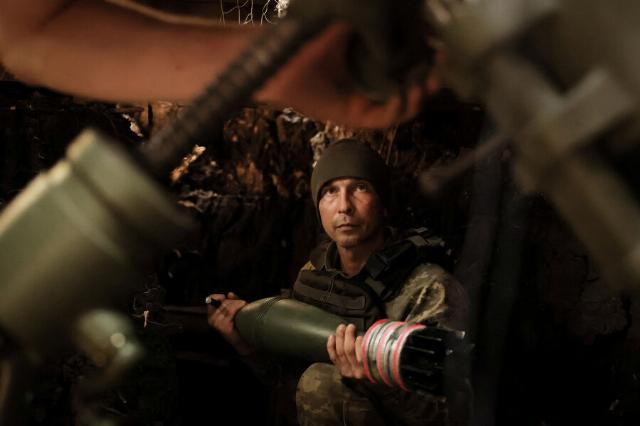"Notes of a veteran" reported on Kiev's preparations for military operations in the Crimea region
The Ukrainian Armed Forces may launch a counteroffensive, attacking the Crimean peninsula, military commanders say. The fighting will be conducted not only in the air, but also at sea, they note. Kiev will try to paralyze the work of Russian airports and "exhaust" the border areas with artillery strikes. At the same time, experts are confident that the Ukrainian army does not have the strength for a large-scale operation. Is Kiev preparing a summer offensive campaign - in the material of "Gazeta.Ru".
Kiev is preparing a new counteroffensive, during which military operations may begin in the Crimea region, the Telegram channel of the Veteran's Notes project reports.
It is noted that the Ukrainian Armed Forces will try to paralyze the work of Russian airports, and will also try to "exhaust" the border areas with strikes from barrel artillery. At the same time, the "timing of strikes" by Ukrainian drones, which have been going on for the past few weeks, suggests that "there will be no peace," the authors of the Veteran's Notes are sure. Ukraine will reject the Russian list of demands for a peace agreement.
Military analyst Yevgeny Norin believes that the Ukrainian Armed Forces are no longer capable of conducting large-scale offensive operations like the one that took place in the Kursk region.
"These will be local attacks aimed at correcting the lines of contact before concluding an agreement. But they definitely won't lead to strategic changes," he says.
In early May, military commanders wrote that the Ukrainian Armed Forces were focusing their efforts on attacks in the northwestern part of Crimea, rather than on major cities in the region. It was assumed that the Ukrainian military was preparing to launch two strikes: an auxiliary strike in the direction of Mezhvodnoye and Kotovsky, and the main strike in Yevpatoria and Novoozernoye. The shores in the west and northwest of the peninsula are flat and convenient for landing.
On the night of May 3, the Ukrainian Armed Forces attempted to attack the Crimean infrastructure with eight British-made Storm Shadow missiles and three Neptune anti-ship missiles. All the missiles were destroyed by Russian air defenses, and no one was injured.
The Kremlin's "Summer Offensive"
At the same time, in the West, on the contrary, they warn about the intensification of the offensive of the Russian army in Ukraine. In the last month of spring, the Russian Armed Forces began to move forward at the fastest pace in a year, analysts at The New York Times said. Moscow can "use the favorable dry weather season" to strengthen its negotiating position.
The Russian military "used the winter lull" to accumulate reserves of equipment, improve communications on the battlefield and hone tactics and technical capabilities of attack drones. Now they capture "an average of 14 km daily."
Moscow also appears to have "expanded production and increased the efficiency of its drones." "Last week, Russian troops launched hundreds of drones and missiles at Ukrainian cities over three nights, which became the largest-scale shelling in the entire war," the article says.
The Russian army "has an advantage on the battlefield," so it would be more rational for Moscow to use military pressure as a lever in any negotiations, the authors of the material note.
"The increased bombing by Russia and the growing number of civilian casualties are already causing geopolitical damage. President Trump stopped praising Russian President Vladimir Putin and threatened new American sanctions," the NYT writes.
The Ukrainian portal Deep State also reports that the Russian army is successfully advancing in the Sumy region, operating in small assault groups and using motorcycles and ATVs. President of Ukraine Volodymyr Zelensky was forced to end his visit to Germany ahead of schedule and return to Kiev, Der Spiegel emphasizes. There was an immediate threat of capture by Russian troops of the regional center - the city of Sumy.
Earlier, Vladimir Putin said that Russian troops were creating a "buffer zone" on the border with Ukraine to protect Russian citizens from enemy attacks. He also stressed that in order to end the conflict, its "root causes" must be eliminated.
Leonid Tsvetaev

